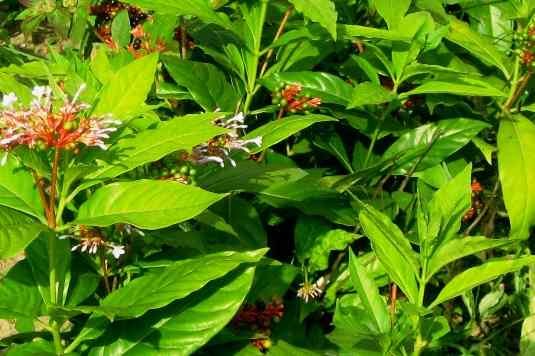Snake Repellent Plants: Are you tired of finding snakes slithering around your garden or backyard? Fear not! Mother Nature has provided us with a natural solution to repel these reptiles. By incorporating certain plants into your surroundings, you can create an environment that snakes find uninviting. In this article, we will explore ten plants that repel snakes, ensuring a snake-free zone for you and your loved ones. So let’s dive in and discover these natural snake deterrents.
Snake Repellent Plants
Snakes play a vital role in ecosystems, but encountering them in residential areas can be unnerving. Fortunately, there are numerous plants that possess natural properties to deter snakes. These plants emit odors or contain compounds that snakes find displeasing, encouraging them to seek alternative habitats.
Let’s explore these ten plants in detail and understand how they can help you create a snake-free environment (Snake Repellent Plants).
Table of Contents
1. Marigold: The Vibrant Snake Repeller

Marigolds, with their vibrant and aromatic flowers, are not just a treat for the eyes but also a natural deterrent for snakes. The strong scent emitted by marigolds repels snakes, making them an excellent choice for planting around your garden or backyard. Their bright colors also attract beneficial insects that prey on snake food sources, providing an added layer of protection.
2. West Indian Lemongrass: A Citrusy Guardian

With its refreshing citrus fragrance, West Indian lemongrass not only adds zest to culinary delights but also acts as a snake repeller. The high citral content in lemongrass emits a strong odor that snakes find intolerable. Planting lemongrass around your property acts as a natural barrier against snakes, keeping them at bay.
3. Garlic: A Powerful Snakes-Away Herb
Garlic, known for its strong aroma and culinary uses, also possesses snake-repellent properties. The pungent smell of garlic cloves interferes with a snake’s sensory receptors, making them avoid areas infused with its scent. By planting garlic bulbs strategically, you can create a snake-deterring barrier while enjoying the many benefits of this versatile herb.
4. Indian Snakeroot: A Traditional Snake Repellent

Indian Snakeroot, a herbaceous perennial plant, has been used for centuries as a natural snake repellent. Its strong odor and bitter taste make it unappealing to snakes. Planting Indian Snakeroot around your property can help deter snakes and provide an aesthetically pleasing addition to your garden.
5. Onion: The Pungent Snake Discourager
The pungent aroma of onions, commonly used in various culinary dishes, can also keep snakes at bay. Snakes have a strong sense of smell, and the potent scent of onions disrupts their olfactory receptors, discouraging them from entering onion-infused areas. Adding onions to your garden not only repels snakes but also provides a flavorful ingredient for your culinary adventures.
6. Wormwood: A Bitter Enemy of Snakes

Wormwood, a perennial herb with a distinct bitter scent, is highly effective in repelling snakes. Snakes dislike the intense aroma of wormwood, making it an excellent choice for a natural snake deterrent. Planting wormwood around your property creates an environment that snakes will actively avoid.
7. Rosemary: The Fragrant Snake Deterrent

Rosemary, an aromatic herb commonly used in cooking, can also act as a natural snake deterrent. Its pleasant scent to humans is overpowering to snakes, causing them to keep their distance. By incorporating rosemary into your garden or landscaping, you can enjoy its fragrance while keeping snakes away.
8. Catnip: A Feline Favorite, a Snake’s Nightmare

Catnip, a member of the mint family, is known for its euphoric effect on felines. However, its strong scent repels snakes as well. Nepetalactone, the compound responsible for attracting cats, has the opposite effect on snakes. Planting catnip around your property can act as a natural deterrent, creating a snake-free zone.
09. Tulsi (Holy Basil): The Sacred Snake Repellent
Tulsi, also known as Holy Basil, holds great religious and cultural significance in many parts of the world. Interestingly, this sacred herb also repels snakes. The strong aroma of Tulsi is disliked by snakes, making it an effective natural deterrent. Planting Tulsi around your premises not only keeps snakes away but also adds a touch of spirituality to your surroundings.
10. Lavender: A Calming Scent that Snakes Detest
Lavender, with its soothing fragrance and beautiful purple blooms, is a delightful addition to any garden. However, snakes find the scent of lavender repugnant. By planting lavender bushes around your property, you create an environment that repels snakes while enchanting humans with its beauty and calming aroma.
Creating a snake-free environment is achievable by harnessing the power of nature. By strategically incorporating snake-repellent plants such as marigold, West Indian lemongrass, garlic, Indian Snakeroot, onion, wormwood, rosemary, catnip, Tulsi, and lavender, you can enjoy a serene and snake-free space (Snake Repellent Plants). Embrace these natural remedies and bid farewell to unwanted slithering visitors!
FAQs – Snake Repellent Plants
Q1. Do these plants guarantee complete snake repulsion?
While these plants possess snake-repellent properties, they cannot guarantee complete snake repulsion. It is advisable to combine the use of these plants with other preventive measures such as removing potential snake habitats and maintaining a tidy environment.
Q2. Can I plant these repellent plants indoors?
Yes, many of these plants can be grown indoors in pots or containers. However, ensure they receive adequate sunlight and care as per their specific requirements.
Q3. Are these plants harmful to pets or humans?
In general, these plants are safe for pets and humans. However, it is recommended to research the specific plant and take necessary precautions if you have pets or individuals with known allergies.
Q4. Can I use essential oils from these plants as a snake repellent?
While essential oils from these plants may have snake-repellent properties, their effectiveness may vary. It is best to consult with experts or follow established guidelines when using essential oils for snake deterrence.
Q5. Can these plants be used in combination for better results?
Yes, using a combination of these plants can enhance their overall effectiveness in repelling snakes. Experiment with different combinations to find what works best for your specific environment.
Also Read - 15 Tips to Quit Smoking






















[…] Snake Repellent Plants […]